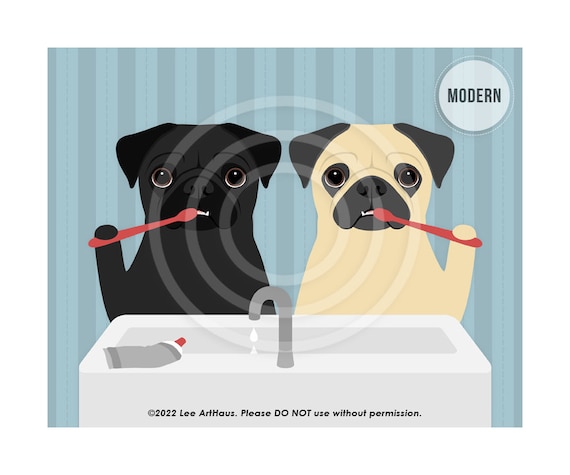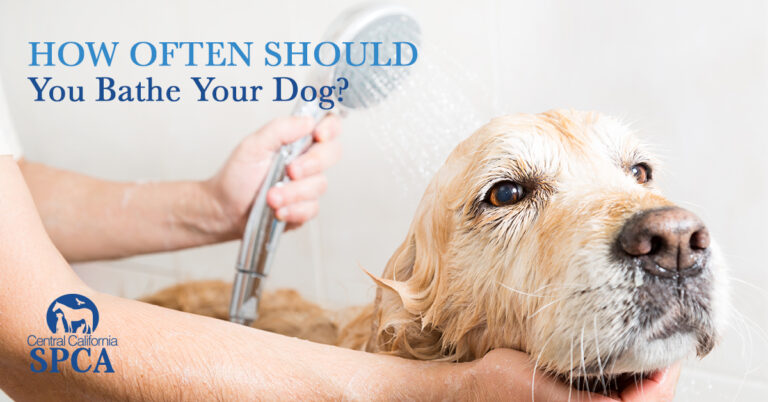As dog owners, one of the common questions we often ponder is how often to shower our furry companions. Finding the paw-fect bathing schedule for our dogs is crucial to maintain their hygiene and overall health. While it’s essential to keep our dogs clean, frequent baths can also strip their skin of natural oils, leading to dryness or irritation.
Understanding the factors that influence the bathing frequency for dogs, such as breed, coat type, and lifestyle, can help us determine the ideal shower routine for our pets. In this blog, we will explore the recommended bathing schedules for various types of dogs, practical tips for a stress-free bath time, and the signs that indicate when it’s time for a wash. Let’s delve into the importance of proper grooming and hygiene practices to ensure our dogs stay clean, healthy, and happy!
Importance of Showering Your Dog Regularly
Regularly showering your dog is essential for their overall health and well-being. Just like humans, dogs need to stay clean to prevent skin issues, infections, and bad odors. Bathing also helps in removing dirt, allergens, and parasites from their fur, reducing the risk of skin irritations and diseases.
Prevents Skin Problems
Regular baths help in preventing skin problems in dogs. Keeping their coat clean and free from dirt and debris can reduce the chances of infections and hot spots.
It is crucial to use dog-specific shampoos that are gentle on their skin to maintain the natural oils and pH balance.
Controls Odors
Showering your dog regularly helps in controlling unwanted odors. Dogs can pick up smells from various places, and a bath can help in keeping them fresh-smelling.
Using a scented shampoo can also add a pleasant fragrance to your furry friend, keeping them smelling great between baths.

Determining Your Dog’s Bathing Needs
Regular baths are essential to maintain your dog’s hygiene and keep their skin and coat healthy. However, determining how often you should bathe your furry friend can vary based on several factors.
Coat Type
Different coat types require different bathing frequencies. Dogs with oily skin or thick double coats may need baths more frequently than those with dry skin or short coats.
Long-haired breeds often benefit from more frequent baths to prevent matting and tangling, while short-haired breeds may only need baths every few months.
Activity Level
The amount of outdoor activities your dog engages in can also impact their bathing needs. Dogs that spend a lot of time outdoors or enjoy rolling in dirt may need more frequent baths to remove dirt and odors.
On the other hand, dogs that are mostly indoors and have minimal outdoor exposure may require baths less often.
Skin Conditions
If your dog has skin allergies or conditions like dermatitis, their bathing frequency may need to be adjusted. Too many baths can strip their skin of natural oils, while too few baths can lead to skin issues.
Consulting with your veterinarian can help determine the ideal bathing schedule for dogs with specific skin conditions.

Factors to Consider for Bathing Frequency
Deciding how often to shower your dog depends on several factors that influence their cleanliness and skin health. Consider the following points to determine a suitable bathing schedule for your furry friend:
Skin and Coat Type
Different dog breeds have varying coat types that require different levels of grooming. Short-haired dogs may need less frequent baths compared to long-haired breeds. Understanding your dog’s coat type can help you determine how often they should be bathed.
Lifestyle and Activities
Consider how active your dog is and their daily routines. Dogs that spend a lot of time outdoors, playing in mud or water, may need more frequent baths to keep them clean and prevent skin problems. On the other hand, indoor dogs with less exposure to dirt may require fewer baths.
Health Conditions
If your dog has any skin conditions or allergies, their bathing frequency may need to be adjusted. Consulting with your veterinarian can help determine the best bathing schedule to maintain your dog’s skin health without exacerbating any existing issues.
Tips for Bathing Your Dog at Home
Regularly bathing your dog is essential for their hygiene and overall health. When it comes to determining how often to shower your dog, it depends on factors like their breed, coat type, and lifestyle. Here are some tips to ensure a successful bath time at home:
Prepare the Bathing Area
Before starting the bath, gather all the necessary supplies such as dog shampoo, towels, and a brush. Make sure the water temperature is lukewarm to avoid discomfort for your pup.
It’s important to create a calm environment to prevent your dog from getting anxious during the bath. Use non-slip mats in the tub to provide stability for your furry friend.
Brush Before Bathing
Prior to bathing, brush your dog’s coat to remove any tangles or mats. This not only helps in the bathing process but also promotes healthy skin and coat.
- Start brushing from the head and work your way down to the tail
- Use a brush suitable for your dog’s coat type
- Be gentle around sensitive areas like the belly and ears
![Dog enjoying a bath in [current year]](https://www.compass.com/m/70b6da143417b283c88752857a98addb37280bfd_img_1_017cd/origin.jpg)
Professional Grooming Services for Your Dog
When it comes to maintaining your dog’s hygiene, professional grooming services play a crucial role in ensuring your furry friend stays clean and healthy. **Professional grooming** encompasses a range of services that go beyond just a simple bath. These services are designed to cater to your dog’s specific needs based on their breed, coat type, and overall health.
The Importance of Regular Grooming
Regular **grooming** sessions not only keep your dog looking good but also contribute to their overall well-being. **Grooming** helps in preventing matting, reduces shedding, keeps skin issues at bay, and allows for early detection of any health concerns.
For certain breeds, **professional grooming** is necessary to maintain their coat in good condition. **Regular grooming** also helps in preventing any potential skin infections that may arise due to dirt and debris trapped in the fur.
Services Offered by Professional Groomers
Professional groomers offer a variety of services tailored to meet the specific needs of your **dog**. Some common services include **bathing**, **coat trimming**, **nail clipping**, **ear cleaning**, and **teeth brushing**. These services not only enhance your **dog’s** appearance but also contribute to their overall hygiene and comfort.
Experienced groomers use **specialized** tools and products that are safe for your **dog’s** skin and coat. They are trained to handle **dogs** of all sizes and breeds, ensuring a **stress-free** grooming experience for your furry companion.
Frequently Asked Questions
- Why is it important to shower my dog regularly?
- Regular bathing helps keep your dog’s skin and coat clean, healthy, and free of dirt, bacteria, and parasites.
- How often should I shower my dog?
- The frequency of bathing your dog depends on factors such as their breed, coat type, and lifestyle. Generally, most dogs benefit from a bath every 4-6 weeks, but some may need baths more or less frequently.
- What signs indicate that my dog needs a bath?
- If your dog starts to smell bad, has visible dirt in their fur, or their coat looks greasy, it may be time for a bath. Scratching excessively or developing skin issues can also be signs that your dog needs a bath.
- Can I shower my dog too often?
- Showering your dog too frequently can strip their skin and coat of natural oils, leading to dryness and irritation. It is important to find a balance to maintain their skin health.
- How can I make bath time enjoyable for my dog?
- To make bath time a positive experience, introduce your dog to bathing gradually, use dog-friendly shampoos, and reward them with treats or toys. Keeping the water warm and offering praise can also help make bath time enjoyable for your dog.
Final Thoughts: Showering Your Dog the Right Way
Understanding how often to shower your dog is crucial for maintaining their overall health and hygiene. As we’ve discussed in this blog, the bathing schedule can vary based on your dog’s breed, coat type, and lifestyle. While some dogs may need frequent baths, others can go longer between washes.
Remember, bathing your dog too frequently can strip their skin of essential oils, leading to dryness and irritation. On the other hand, infrequent bathing can result in a dirty, smelly pup. Finding the paw-fect balance is key!
Consulting with your vet and observing your dog’s individual needs will help you determine the ideal bathing schedule. Whether it’s weekly baths or monthly showers, prioritize your furry friend’s well-being and keep them clean and happy!



